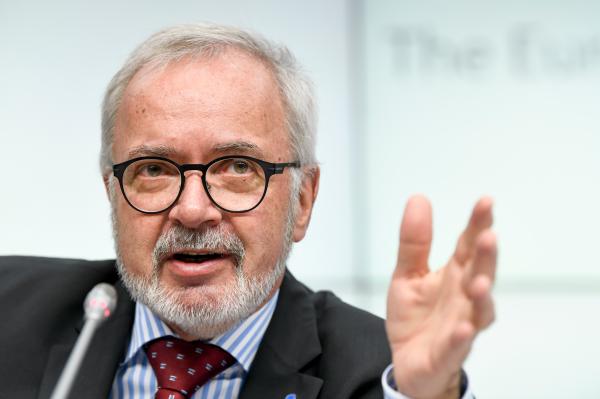EIB President Werner Hoyer addressed the World Leaders Summit on 7 December on the progress of implementation of the joint MDB Statement on Nature, People and Planet.
Find out more on our press release and get the latest information on the EIB’s participation at COP27.
Check against delivery

Mr President, Your excellencies, ladies and gentlemen,
Looking at the challenges the world is facing today, from the energy crisis to the food crisis, one might think … that we are facing a dilemma … that we must choose between battling different crises –that we must choose between energy, food, climate or nature.
But, the truth is that these issues are deeply intertwined – actions to combat biodiversity loss and climate change also help to solve the other crises.
We have known this for almost 30 years … since leaders met in 1992 in Rio for the Earth Summit, but we don’t have the luxury to wait another 30 years to act. We must act now!
Just after COP27 here in Sharm-El-Sheikh, we will be turning to COP15 in Montreal, where we must agree on an ambitious Global Biodiversity Framework.
Nature has a central role to play, but we also know that nature’s significant potential is … undervalued, … untapped and … under-resourced.
Nature is central to adapting to the impacts of climate change. Nature-based solutions to climate change provide us with almost a quarter of the most cost effective climate actions.
Healthy, functioning and diverse ecosystems are also better able to:
… adapt to climate change;
… improve food and water security and
… support cost-effective urban infrastructure.
Climate change itself accelerates biodiversity loss, thereby undermining the resilience of people, economies and the environment on which our wellbeing depends.
We only have a limited amount of time left. A rapid rise in temperature will limit the power of nature. Irreversible impacts may follow. Early action not only has a greater impact, it is also better value for money.
Against this backdrop, what are we, the multilateral development banks (MDBs) doing to find solutions and to raise ambition?
Last year, at COP26 in Glasgow, we issued a joint Statement on Nature, People and Planet. Since then, we have taken action …
… from our development of a nature-positive taxonomy ahead of COP15,
… over joint initiatives to reverse environmental degradation, such as the launch of the Blue Med Partnership and the Blue Economy Resilient Africa Programme here at COP27;
… to establishing common metrics and standards for biodiversity data in our projects.
But, there are a number of challenges … just to mention three …
… firstly, we need to shift from a focus on projects to a focus on more systemic impacts to transform our current food, infrastructure and finance systems,
… secondly, we need to improve our accounting methods to better clarify our exposure to nature-related risks and opportunities. Only when we measure things, can we understand our influence on them,
… thirdly, we need to create new revenue streams to support nature-positive activities by developing nature markets.
The path ahead of us is complex, but promising. The goal is clear: halting biodiversity loss and reversing the trend as soon as possible.
In order to scale up action, the MDBs have agreed to establish a Biodiversity and Nature Working Group. This will help us to accelerate our efforts and ultimately contribute to the recovery of ecosystems, at local, national and regional level, across the geographies where we operate.
Nature and our future generations deserve no less.